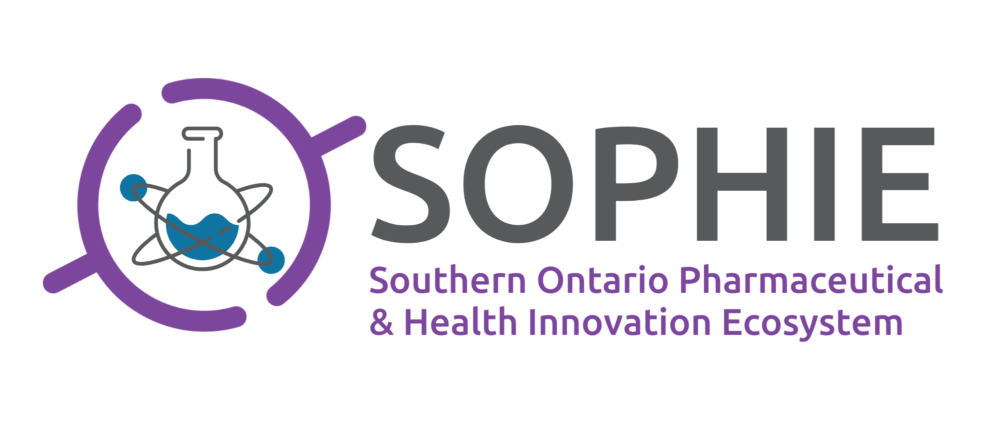Innovation
Improving MRI Quality
Fuelling Collaboration with IRC Radiology Researchers
A new partnership between PreOperative Performance and scientists at The Research Institute of St. Joe’s Hamilton (RSJH) may help to solve a long-standing challenge for international brain imaging researchers and radiologists.
Diffusion tensor imaging (DTI) is an MRI technology that enabled 3D visualization of the brain’s myelin coating—the fatty substance that protects neurons. Since myelin can be affected by various diseases, diffusion-based brain scans have enormous potential for diagnostics and treatment.
However, despite the emergence of DTI in the 90s, clinicians still do not have any means to assess the quality and consistency of this imaging technology—a crucial missing piece needed to use DTI for a range of neurological conditions.
“The need for tools to help medical imaging specialists perform standardized MRI diffusion-based scans is consistently top-of-mind,” says Fergal Kerins, PreOperative Performance’s founder and CEO. “Quality MRI data has the potential to open a wealth of benefits. Patients, clinicians, and the overall healthcare system would benefit from greater access to injury evaluation, neurosurgical planning, expanded diagnostic potential, and patient monitoring.”
To help address this need, PreOperative Performance is pleased to be named an Innovation Factory and Synapse Life Science Consortium-supported company, part of the Southern Ontario Pharmaceutical and Health Innovation Ecosystem (SOPHIE) program.
Participating in the SOPHIE program will help PreOperative Performance fuel a 12-month joint project with Professor Dr. Michael Noseworthy and imaging scientist Norm Konyer at The Research Institute of St. Joe’s. Through the project, their team will test and evaluate PreOperative Performance’s anisotropic diffusion phantom technology on their MRI systems. Their shared goal is to co-develop an optimized product to enable neuroradiologists to assess quality and consistency of their MRI systems’ diffusion imaging protocols, which has never been achievable in the past.
“We are very excited about this partnership,” says Sarah Howe, Executive Director of The Research Institute of St. Joe’s Hamilton. “Our support of and participation in the innovation economy is essential if we are to ensure that we are attracting and retaining our healthcare entrepreneurs. The partnership with PreOperative Performance is just one of many examples of how St. Joe’s is prioritizing innovation.”
What is SOPHIE?
SOPHIE is a program funded through the Federal Economic Development Agency for Southern Ontario (FedDev Ontario), in partnership with Innovation Factory and the Synapse Consortium. Ontario-based life science innovators launch collaborative projects while leveraging the facilities, expertise and infrastructure of world-class academic and clinical institutions in Hamilton, including McMaster University, Mohawk College, Hamilton Health Sciences and St. Joseph’s Healthcare Hamilton. Successful applicants can access up to $100,000 in non-dilutive grant funding to support their commercialization project with an academic or clinical partner.
“Accessing the SOPHIE program has allowed us to enter into this partnership with Dr. Noseworthy and his team,” says Kerins. “We’re excited to develop a tool that the field has been missing for some time. The SOPHIE community has been welcoming and we look forward to other opportunities to tap into its atmosphere of collaboration.”
In October 2023, Dr. Noseworthy presented his lab’s work at the European Society of Magnetic Resonance in Medicine and Biology in Switzerland. His lab found that PreOperative Performance’s phantom is stable across time as well as between vendor motion probing gradient (MPG) schemes used in DTI acquisitions. A phantom is an object designed to imitate human tissue that is used to test the accuracy of imaging devices, such as MRIs. The MPG scheme is used to probe the motion of hydrogen nuclei in tissue and is often used for mapping myelin in the brain.
These results show that vendors can use the PreOperative Performance QC phantom to standardize their DTI protocols for MRI imaging. The ability to standardize DTI sequences across multiple vendors will allow MRIs to more accurately detect myelin in the brain, and therefore improve researchers’ understanding of neuropathologies and provide important quality control metrics for multisite studies.
Dr. Noseworthy’s lab is now investigating the potential of PreOperative Performance’s phantom for more advanced uses.
About PreOperative Performance
Based in Toronto, Canada, PreOperative Performance is a seed-stage company with unique, proprietary technology that supports MR scan accuracy. Its vision is for every patient and clinician to enter treatment with the confidence that they’re working from the best-possible MR data. PreOperative Performance’s products and programs help to accelerate the rate of successful outcomes from neurological procedures. Learn more at preoperativeperformance.com.
About the SOPHIE Program
SOPHIE is a catalyst for the commercialization and scale-up of innovative Ontario technologies. It was established as a partnership between the Federal Economic Development Agency of Southern Ontario (FedDev Ontario), Innovation Factory, and the Synapse Consortium. Life science companies participating in the program receive funding to accelerate their commercialization efforts, further develop their intellectual property, obtain critical clinical data, or undertake key product testing and evaluation. Learn more at sophieprogram.ca.



